Created: 2025.10.20. 11:29
With funding of HUF 1.7 billion from the Rural Development Programme and more than half a billion HUF of its own resources, Széchenyi István University has established pig and poultry demonstration plants, a smart garden, and modernised the laboratory of its cheese production facility at the Albert Kázmér Faculty of Agricultural and Food Sciences. At the ceremony, it was emphasised that these projects serve both practice-oriented education and research.
Széchenyi István University aims for its Albert Kázmér Faculty in Mosonmagyaróvár to support its students, staff and the region with state-of-the-art educational and research infrastructure. The two projects, implemented through grants awarded under the Rural Development Programme, contribute significantly to this goal. Their official launch took place on 17 October.
At the event, Dr Tamás Tóth, Research Professor and Dean of the Faculty, stated that the developments aim to enable secondary school and university students, as well as corporate partners, to gain practical experience of modern, digitally supported agricultural solutions and food production processes. The Smart Farm educational site features an animal research laboratory of over 500 square metres, comprising 18 rooms and equipped with computer-controlled climate regulation and integrated site monitoring. Individual feed intake and emission measurements are supported by poultry and pig metabolism laboratories, along with specialised pig units. The application of artificial intelligence-based solutions – such as machine vision and acoustic analysis – enables real-time monitoring of animal welfare and behaviour.
The Dean also elaborated that the Smart Garden, established at the Lucsony utca site, includes 40 raised garden beds, automatic irrigation and plant monitoring systems, a weather station, and a renovated greenhouse equipped with a herb dryer and seedling nursery. The newly developed “Smart Garden” application, featuring VR visualisation, makes learning an engaging, interactive experience. Furthermore, the cheese production laboratory has been upgraded with state-of-the-art equipment, facilitating quality control and active ingredient measurement. According to Dr Tóth, these developments simultaneously support educational and research goals, providing a foundation for project-based learning, training sessions, and hands-on demonstrations for students, secondary school pupils and businesses alike.
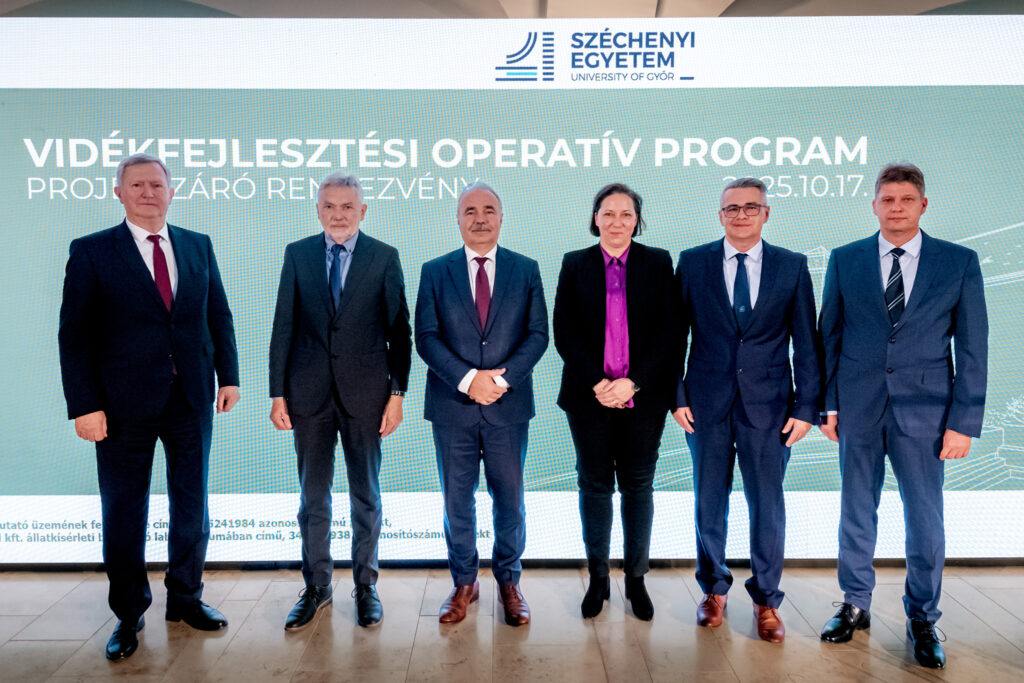
The inauguration ceremony was attended by: Professor Dr Ferenc Friedler, Rector and Vice President for Scientific Affairs of Széchenyi István University; Miklós Szabó, Mayor of Mosonmagyaróvár; Dr István Nagy, Minister of Agriculture; Dr Erika Hanczné Lakatos, Vice-Dean for Strategic Affairs of the Albert Kázmér Faculty; Professor Dr Tamás Tóth, Dean of the Faculty; and Dr Balázs Húth, Head of the Department of Animal Science (Photo: András Adorján)
In his speech, Professor Dr Ferenc Friedler, Rector and Vice President for Scientific Affairs of the University, pointed out that these two projects not only created infrastructure but also shaped attitudes. “They express our Institution’s commitment to sustainability and modern food production as strategic priorities, where traditional agricultural knowledge, complemented by digital technologies, opens new horizons for the entire sector,” he said.
He highlighted the importance of integrating cutting-edge knowledge, modern technologies, and practical experience: “This ensures that Hungarian agriculture can meet the expectations of the 21st century – and that rural areas remain spaces of progress, value creation, and high quality of life,” he emphasised.
Dr István Nagy, Minister of Agriculture, explained that the call for proposals supporting demonstration farms under the Rural Development Programme was announced in 2023. “Our aim was to establish practical education sites equipped with the best available technology, enabling schools and universities to deliver education under 21st-century conditions. Within this call, 19 institutions received a total of HUF 15.6 billion in funding,” he summarised. He also drew attention to the importance of ensuring a steady supply of skilled professionals: “Today, the transition from vocational to higher education is much easier than before: the certified technician programmes and collaborations between vocational institutions and universities provide a solid foundation for this. This year, more than 3,200 students were admitted to state-funded agricultural higher education programmes, over 500 of whom began their studies here in Mosonmagyaróvár,” he stressed.
Miklós Szabó, Mayor of Mosonmagyaróvár, in his address, underlined the close cooperation between the city and the Albert Kázmér Faculty of Széchenyi István University. He noted: “These projects enrich not only the institution but also the city itself — and their impact will be felt for decades to come. They make local education programmes even more attractive to young people and ensure that even more highly trained professionals graduate from the Faculty.”
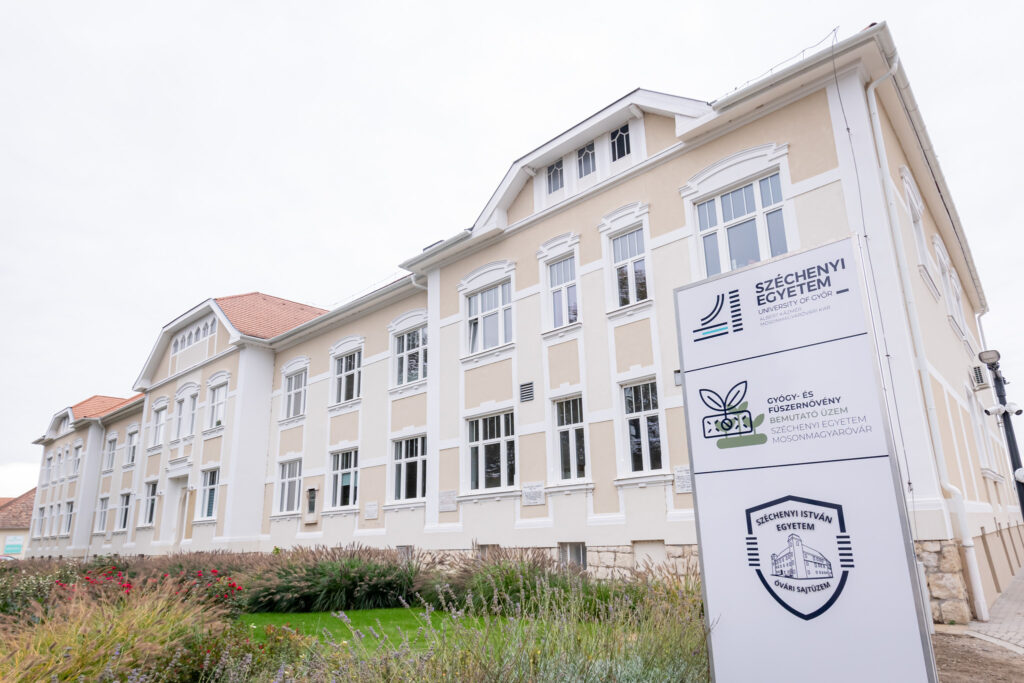
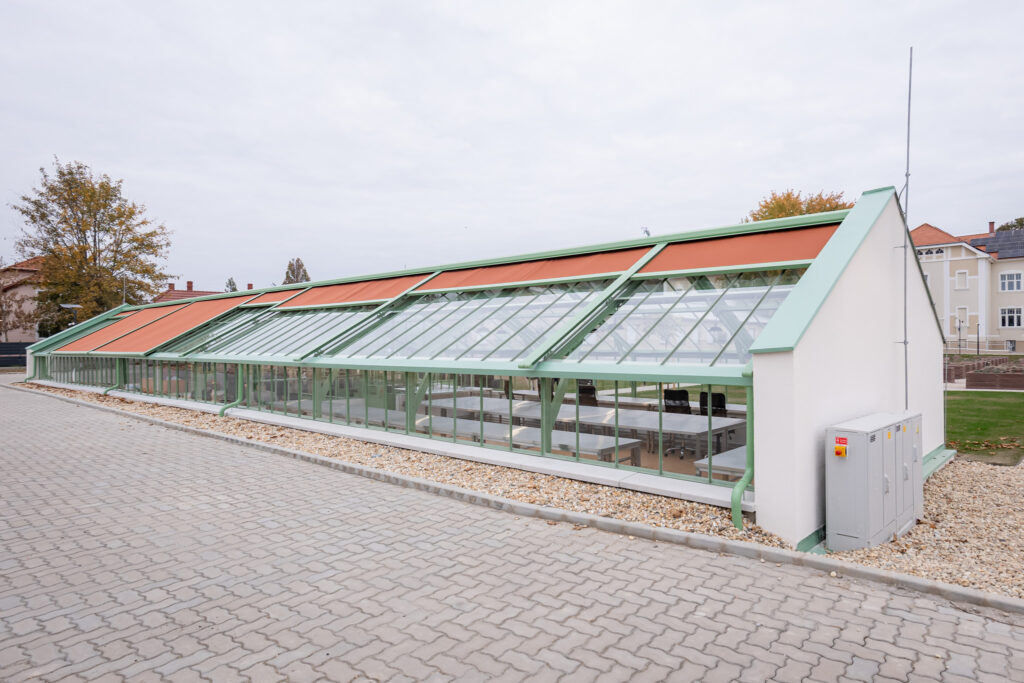
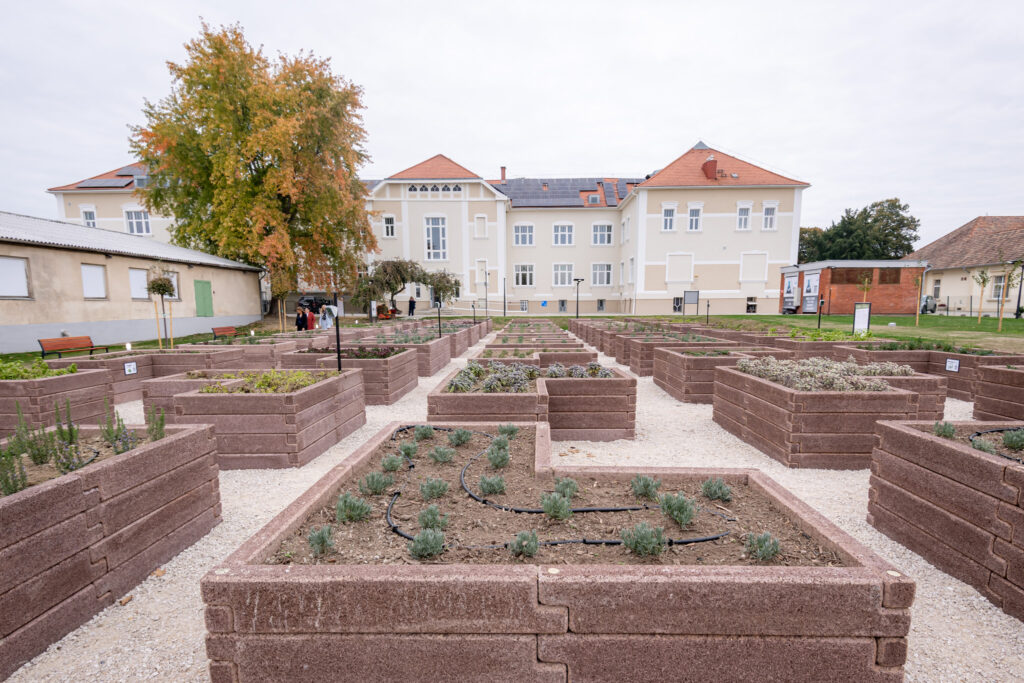
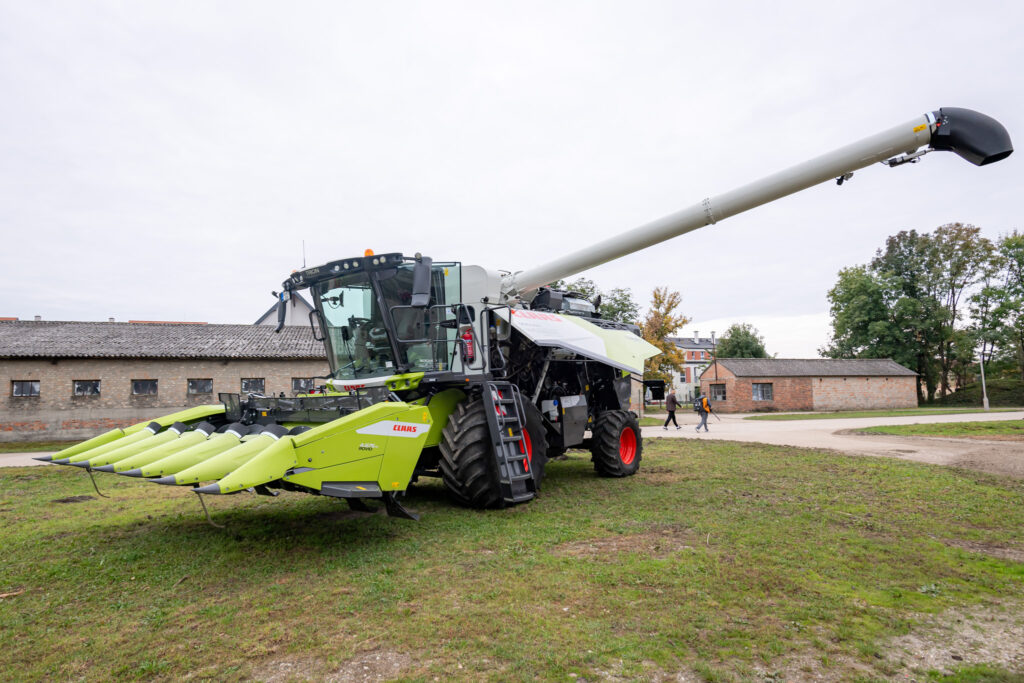
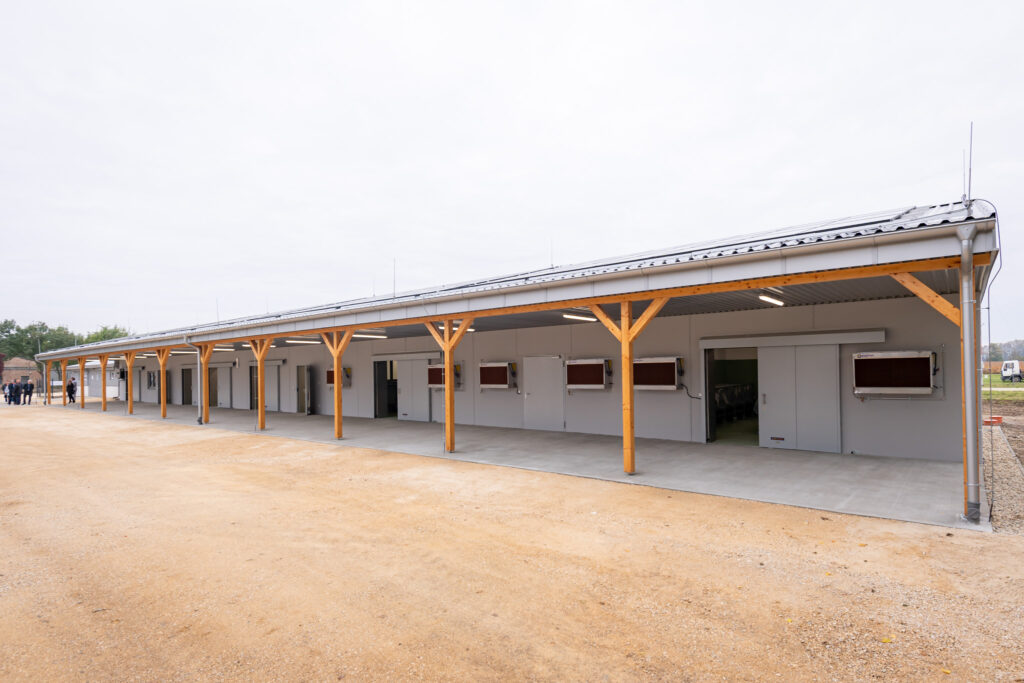
The newly inaugarated developments thus serve both practice-oriented education and reasearch (photos: András Adorján)






